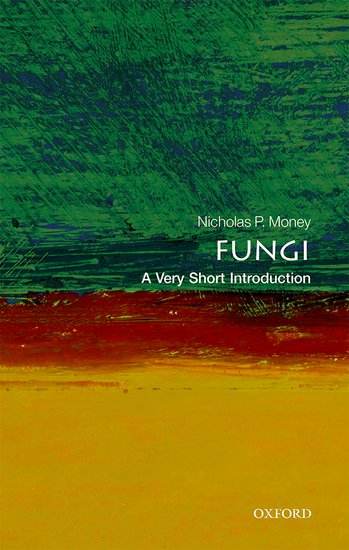Home >
A Very Short Introduction >
Fungi (Biology)
A Very Short Introduction | Biology
Fungi
ISBN: 9780199688784
Series: A Very Short Introduction
Fungi (Biology)
A Very Short Introduction Fungi (Biology) Media > Books > Non-Fiction > Education Books Expect Delays of Up to 4 Weeks| Order Below |
ISBN
9780199688784 (10-digit ISBN: 0199688788)
- Description
- Key Features
- Series Description
- Table of Contents
- Provides a clear and engaging overview of the entire field of mycology or fungal biology
- Offers succinct descriptions of molecular and cell biology as they apply to fungi
- Addresses fungal diversity, evolution, genetics, reproduction, spore formation and fungal diseases of plants and animals
- Explains the reliance of many plants and animals on fungi
- Discusses the importance of fungi in ecology, agriculture, and biotechnology
The variety of the mycological world is far greater than most people imagine. Tens of thousands of fungal species have been described and many more are known only from the abundance of their genes in soil and water. Fungi are hugely important as agents of wood decay in forests, and, as parasites, they have caused the deaths of millions of people by ravaging crops and reshaping natural ecosystems.Fungi perform a variety of essential functions in ecosystems, and are important to both agriculture and biotechnology. Their importance is now becoming better appreciated among scientists, though there is much still to be understood concerning their taxonomy and evolution. This Very Short Introduction highlights the variety and extraordinary natures of fungi, revealing the remarkable facts of fungal biology and the global significance of these enchanting organisms.
Oxford's Very Short Introductions series offers concise and original introductions to a wide range of subjects--from Islam to Sociology, Politics to Classics, Literary Theory to History, and Archaeology to the Bible.
Not simply a textbook of definitions, each volume in this series provides trenchant and provocative--yet always balanced and complete--discussions of the central issues in a given discipline or field. Every Very Short Introduction gives a readable evolution of the subject in question, demonstrating how the subject has developed and how it has influenced society. Eventually, the series will encompass every major academic discipline, offering all students an accessible and abundant reference library.
Whatever the area of study that one deems important or appealing, whatever the topic that fascinates the general reader, the Very Short Introductions series has a handy and affordable guide that will likely prove indispensable.
Please note: As this series is not ELT material, these titles are not subject to discount.
1: What is a fungus?
2: Fungal diversity
3: Fungal genetics and life cycles
4: Fungal mutualisms (supportive relationships)
5: Fungi as parasites of plants
6: Fungi and decomposition
7: Fungi in animal health and disease
8: Mushroom picking, mushroom cultivation, and fungal biotechnology
References
Index
The variety of the mycological world is far greater than most people imagine. Tens of thousands of fungal species have been described and many more are known only from the abundance of their genes in soil and water. Fungi are hugely important as agents of wood decay in forests, and, as parasites, they have caused the deaths of millions of people by ravaging crops and reshaping natural ecosystems.Fungi perform a variety of essential functions in ecosystems, and are important to both agriculture and biotechnology. Their importance is now becoming better appreciated among scientists, though there is much still to be understood concerning their taxonomy and evolution. This Very Short Introduction highlights the variety and extraordinary natures of fungi, revealing the remarkable facts of fungal biology and the global significance of these enchanting organisms.
Key Features
- Provides a clear and engaging overview of the entire field of mycology or fungal biology
- Offers succinct descriptions of molecular and cell biology as they apply to fungi
- Addresses fungal diversity, evolution, genetics, reproduction, spore formation and fungal diseases of plants and animals
- Explains the reliance of many plants and animals on fungi
- Discusses the importance of fungi in ecology, agriculture, and biotechnology
Series Description
Oxford's Very Short Introductions series offers concise and original introductions to a wide range of subjects--from Islam to Sociology, Politics to Classics, Literary Theory to History, and Archaeology to the Bible.
Not simply a textbook of definitions, each volume in this series provides trenchant and provocative--yet always balanced and complete--discussions of the central issues in a given discipline or field. Every Very Short Introduction gives a readable evolution of the subject in question, demonstrating how the subject has developed and how it has influenced society. Eventually, the series will encompass every major academic discipline, offering all students an accessible and abundant reference library.
Whatever the area of study that one deems important or appealing, whatever the topic that fascinates the general reader, the Very Short Introductions series has a handy and affordable guide that will likely prove indispensable.
Please note: As this series is not ELT material, these titles are not subject to discount.
EASY ORDER FORM
PRICES LISTED INCLUDE CONSUMPTION TAX
Price Before Tax:
¥1,790


